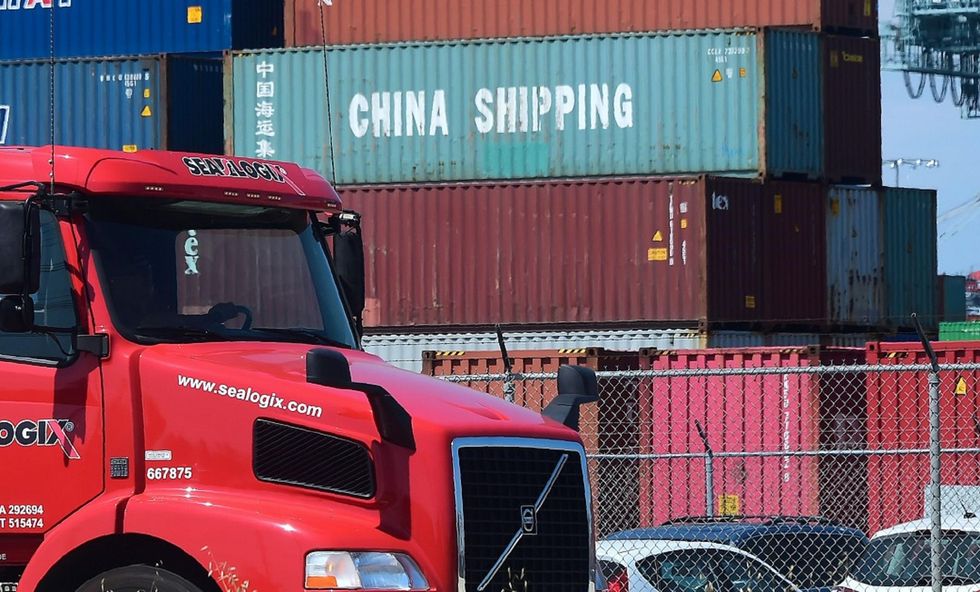
A new analysis from the Chamber of Commerce says that in order to counteract the effects of President Donald Trump's tariffs, taxpayers would need to grant $39 billion in bailouts to American industries. (Frederic J. Brown/AFP/Getty Images)

Bailing out every industry hurt by President Donald Trump's tariffs would cost taxpayers $39 billion, according to an analysis from the U.S. Chamber of Commerce.
On July 24, the White House announced that it would be giving $12 billion in emergency aid to U.S. farmers to counteract the impact of tariffs on their profits.
In its analysis, the Chamber looked at the $12 billion and calculated how much money would have to be given to other industries to make up for the tariffs at the same rate. For example, tobacco manufacturers would require $120 million to reach the same relative level of compensation. When all these additional bailouts are added up, the result is $27.2 billion. Added to the $12 billion already promised to farmers brings the number up to $39.2 billion.
The Depression-era program that Trump used to get bailout money for farmers without running it by Congress allows the president to borrow up to $30 billion in order to “stabilize, support, and protect farm income and prices.”
Despite the Trump administration's original tariffs being put in place to help the American steel and aluminum industries, those industries combined would require an $8.8 billion bailout, just to reach the same compensation level that the farmers received ($4.6 billion for iron and steel producers, $1.8 billion for manufacturers of iron and steel products, and $2.4 billion for aluminum producers and manufacturers of aluminum products).
On March 1, Trump announced that the U.S. would be hitting steep tariffs on all imports of steel and aluminum.
Several nations, including Canada, Mexico, India, the European Union, and China have slapped retaliatory tariffs on billions of dollars worth of U.S. products.
These tariffs have been criticized by many prominent members of Trump's own party, including Rep. Justin Amash (R-Mich.), Sen. Rand Paul (R-Ky.), and Sen. Ben Sasse (R-Neb.). Trump, meanwhile, has staunchly defended the tariffs, calling them the "greatest" and arguing that they are necessary to combat trade policies by other nations.
Tariffs are the greatest! Either a country which has treated the United States unfairly on Trade negotiates a fair deal, or it gets hit with Tariffs. It’s as simple as that - and everybody’s talking! Remember, we are the “piggy bank” that’s being robbed. All will be Great!
— Donald J. Trump (@realDonaldTrump) July 24, 2018
While the U.S. and EU have tentatively agreed to work on tariffs and even potentially reach a scenario with “zero tariffs,” the impact on American companies in the meantime has been significant.
General Motors announced that it would lose $1 billion this year, which it blamed on a combination of tariffs and the state of the national currencies in Brazil and Argentina. Fiat Chrysler and Harley-Davidson have both adjusted its own expectations down as well. Whirlpool initially praised the Trump administration's tariffs on foreign-made washing machines, but has since been hit by an additional $64 million in the cost of raw materials because of Trump's tariffs on steel and aluminum.
Even Alcoa Corp., the largest aluminum producer in the U.S., has been hurt by the tariffs. As part of its process, Alcoa would produce some material in Canada and then ship it back into the United States. Trump's tariffs on aluminum imports from Canada have cost the U.S.-based company an additional $15 million.